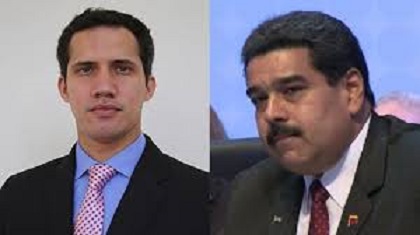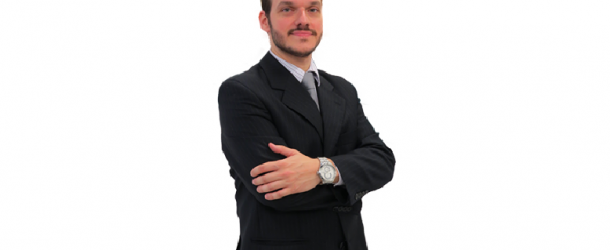Ayşe Yarar: Mr. Velasco, thank you very much for accepting our interview proposal. Could you please give some information about your academic life and studies?
Paulo Velasco: I am currently Associate Professor of International Politics at the Rio de Janeiro State University (UERJ). I took my PhD degree in Political Science from the Institute of Social and Political Studies of the Rio de Janeiro State University (IESP-UERJ) and Master degree from the Institute of International Relations of the Pontifical Catholic University of Rio de Janeiro (IRI-PUC-Rio). I am a senior fellow at the Brazilian Center for International Relations (CEBRI). My research focuses on Brazilian foreign policy, regionalism and Latin American politics.
Ayşe Yarar: After opposition leader Juan Guaido declared himself as acting president, Venezuela has entered into a big political crisis. There seems to be two presidents in the country calling each other illegitimate. At this point, how do you evaluate the current political situation in Venezuela? Is a peaceful transition for this country is possible according to you?
Paulo Velasco: The political situation is still very uncertain. The role of the military has been instrumental in sustaining Maduro’s government and they remain at his side, even after Guaido’s offer of amnesty. In order to have a peaceful transition, Maduro’s government should avoid maximizing the use of force to repress peaceful opponents. At the same time, a dialogue should be built between Maduro and Guaidó, something suggested by actors like Mexico, Uruguay and even the European Union. Calling for new, truly open and participatory elections would be a possible solution, but neither Maduro nor Guaidó seem to accept this idea for the time being.
Ayşe Yarar: What’s the main reason behind Venezuela’s political and also economic crisis in your opinion? Imperialism? Foreign attacks? Or inability of Maduro’s government to rule a country?
Paulo Velasco: The political crisis in the country results fundamentally from a war between powers: The Executive and the Judiciary against the Legislative (National Assembly). The country was institutionally paralyzed and the situation worsened with the convening of the Constituent Assembly in 2017, which withdrew the power of the opposition National Assembly. The 2018 elections, practically without the participation of the opponents, evidenced the institutional precariousness of the country. The economic crisis results in part from the fall in oil prices, given the heavy dependence of the Venezuelan economy on oil exports. There are also effects of the economic sanctions that the country has been suffering in recent years and errors in macroeconomic policies, such as exchange and fiscal policy that failed to contain inflation and failed to stop the decline in GDP.

Juan Guaidó vs. Nicolas Maduro
Ayşe Yarar: Do you think that socialism failed in Venezuela? What would say about the economic situation?
Paulo Velasco: The socialism of the twenty-first century proposed by Chavez achieved in the middle of the last decade expressive results in social indicators, with the reduction of hunger and misery in the country. The so-called missions were a success story. The problem is that they are expensive policies and depend on significant resources, and there have been problems in maintaining them with fallingoil prices. With exchange problems, the country had difficulties in importing essential products and created a problem of chronic shortages. Finally, the level of oil production in the country has been falling a lot in recent years, due to management problems in PDVSA and lack of investment in the sector.
Ayşe Yarar: If you compare Chavez and Maduro governments, what can you say in terms of continuities or changes?
Paulo Velasco: Maduro tries to keep the same speech of Chávez, criticizing the imperialism and focusingon social goals, but he does not have the charisma of his predecessor and does not count on the same support of Venezuelan society, especially with the advance of the economic crisis. Thus, Maduro had to resort to the use of force to suppress demonstrations, as seen in 2017, losing domestic and international legitimacy. The country’s foreign policy also began to face growing isolation, especially in the region, where conservative center-right governments began to rise, which began to actively combat Venezuela. Thus, the country began to harden the discourse against neighbors and to get even closer to actors such as China and Russia.
Ayşe Yarar: Could you evaluate briefly positions of Europe, USA, Russia, China and other Latin American countries in this crisis? Why do they have different approaches about this issue?
Paulo Velasco: Europe and its neighbors like Mexico and Uruguay have not recognized Guaidó as President and hope that there will be a dialogue between Maduro and the opposition. Europeans are betting on new elections as the best solution. The United States and the members of the Lima Group have decided to recognize Guaidó as President, although he has no control over the country’s institutions, which constitutes a precipitation of those countries. Ideally neighbors seek mediation and not declare clear support to one side in the dispute, but the conservative orientation of the majority makes Maduro a troublesome neighbor. Russia and China have already warned the United States that they will not accept any military intervention in the country, reaffirming support for Maduro, an important ally for their investments and exports, but also for their geopolitical positions in Latin America.
Ayşe Yarar: What is next for Venezuela?
Paulo Velasco: It is very difficult to predict what will happen in Venezuela, but the military continues to be decisive. As long as they are with Maduro, this government tends to remain in power, despite external pressures and the division of society. We will hardly see a foreign military intervention in the country unless there is a worsening humanitarian crisis, especially if the Maduro government decides to use increasing force to contain the opposition. Even in the case of new elections and victory of the opposition, the economic and institutional situation in the country would take a long time to improve. It is worth remembering that the opposition is very divided and interests only coincide in wanting to take Maduro out of power, but there are no clear plans for the future.
Ayşe Yarar: Mr. Velasco, thank you very much for sharing your opinions with UPA.
Interview: Ayşe YARAR
Date: 28.01.2019

























































